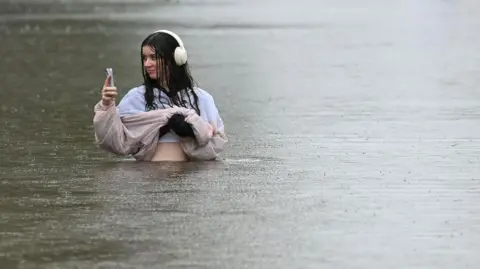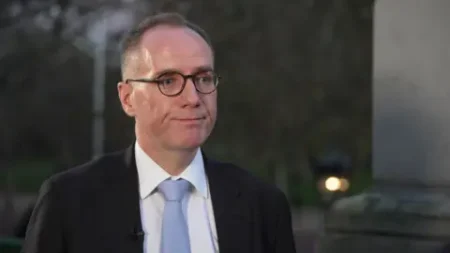**Who Should You Trust for a Weather Forecast?**
As humanity continues to grapple with unpredictable weather events exacerbated by climate change, reliable forecasting is more crucial than ever. Whether it’s tornadoes in the Heartland or seasonal flooding in Queensland, a trustworthy weather forecast can mean the difference between safety and calamity. However, as more people turn to social media for news and information, a critical question arises: who can we genuinely trust for accurate weather updates?
In North Queensland, Australia, the recent record-breaking rainfall caught many off guard, resulting in extensive flooding. Local residents, including Andrew Brown, a cybersecurity lecturer and the founder of a popular Facebook page called Wally’s Weather, found themselves in the eye of this storm. With over 107,000 followers and receiving 24 million monthly views, Brown became a key figure for many seeking timely weather updates. His dedication to providing real-time information during the crisis illustrated the growing significance of social media influencers in the realm of weather forecasting, especially in areas where traditional media outlets lag.
Brown’s hands-on approach included awakening in the night to deliver crucial updates and advising not only his followers but also friends and family about impending weather threats. Based in Townsville, a region known for its intense tropical wet seasons, he recognized how vital it was for his audience to stay informed, particularly at night when severe weather events often strike. His commitment to his followers has made him a trusted source, especially when official updates seemed insufficient.
Notably, Andrew Brown’s rising profile symbolizes a broader trend where communities increasingly turn towards social media influencers for localized weather updates—an inclination reflected in a Pew Research study indicating that 20% of adults in the U.S. rely on social media for weather news. This makes influencers popular, especially in rural and regional settings where traditional media may miss crucial local events.
Despite the comfort of engaging directly with weather influencers like Brown, experts caution against blanket trust in these figures. Professor Daniel Angus, director of the Digital Media Research Centre at Queensland University of Technology, asserts that while influencers engage promptly with their communities and offer significant local insights, this informal method of reporting may sometimes lead to exaggeration or scaremongering.
Moreover, the risk comes to light when considering instances like Higgins Storm Chasing—a social media weather forecaster facing criticism in 2018 for overstating potential flooding. As Professor Angus explains, influencers typically do not face the same accountability that traditional meteorologists or official weather sources do. This lack of oversight can lead to the dissemination of fear-driven forecasts that might not materialize, which in turn can erode public trust in legitimate reporting channels.
The discussion around the credibility of weather forecasting is not confined to social media influencers. Alan Sealls, a former TV meteorologist and current president-elect of the American Meteorological Society, expressed concerns regarding unqualified individuals in the realm of forecasting. He indicated that those without a formal meteorological education might contribute to misinformation through sensationalized long-range forecasts. Ultimately, while trained meteorologists have discernible accountability measures, their untrained counterparts operate largely in an unregulated space.
Conversing about the dynamics of weather forecasting brings us back to Andrew Brown, who, despite lacking formal meteorological training, maintains a commitment to accuracy. His expertise in information technology and an investment in forecasting equipment lift his credibility. Leveraging artificial intelligence to refine analyses is another step towards enhancing his reliability. At the same time, Brown acknowledges the financial potential of weather influencing; figures like Colorado’s Andrew Markowitz are reportedly earning substantial incomes through social media while maintaining full-time jobs.
In conclusion, while social media offers a platform for varied voices in weather forecasting, discerning whom to trust involves weighing the reliability of traditional meteorological services against the local knowledge and engagement provided by influencers. The reality is complex: Influencers can provide immediate, specific insights, while trained meteorologists offer the pedigree of accountability and expertise. Therefore, a balanced approach—validating claims, using multiple trusted sources, and being mindful of the engagement-driven nature of social media—may be the best strategy for consumers seeking dependable weather forecasts.











